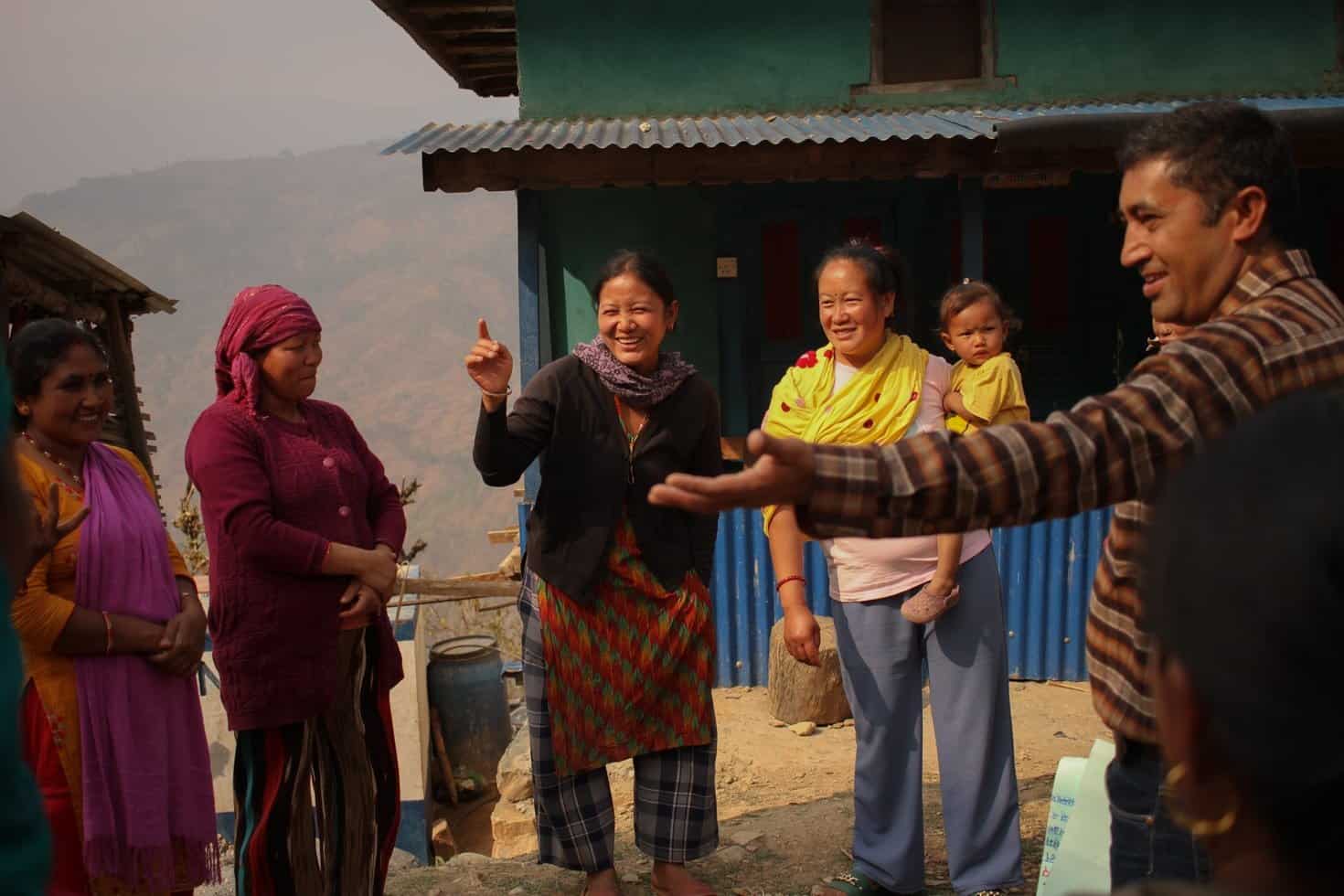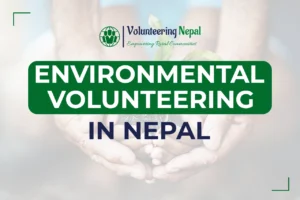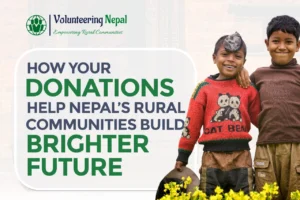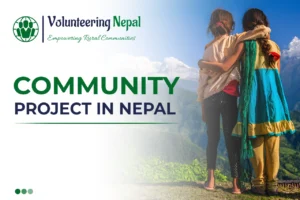
Gender Equality in Nepal: A Holistic Approach for Sustainable Development
Gender equality in Nepal is an essential component of fostering sustainable development, especially in the country’s rural areas. Despite progress over recent decades, women in Nepal still face significant barriers to equal participation in education, employment, and leadership. Volunteers Initiative Nepal (ViN), with over 20 years of experience in community development, has implemented a comprehensive Gender Equality Program to address these inequalities. This long-term project is designed to empower women, reduce gender-based violence, and promote leadership and economic opportunities for women across Nepal.
Why is Gender Equality Important in Nepal?
Nepal remains a country where traditional gender roles heavily influence society, particularly in rural areas. While progress has been made through national and international efforts, disparities still exist in various sectors:
Education
Although the female literacy rate has improved, it remains lower than men’s. Gender inequality in education persists, with 59.63% of women literate compared to 78.59% of men. This gap is even wider in rural areas where early marriage and household responsibilities often prevent girls from continuing their education.
Economic Empowerment
Only 26% of Nepali women are involved in paid work. Most women in rural areas engage in subsistence agriculture and domestic work, limiting their economic independence. Microcredit for women in Nepal is vital for providing financial freedom, but access remains limited in many regions.
Gender-Based Violence
Gender-based violence (GBV) remains a significant issue in Nepal. According to UN Women, more than 48% of Nepali women experience violence at some point in their lives. Cultural taboos and lack of support services prevent many survivors from seeking justice.
To address these pressing issues, ViN’s Gender Equality Program offers a holistic approach focusing on education, economic empowerment, leadership development, and gender-based violence prevention.
| Program Overview | Gender Equality for Holistic Community Development |
| Program Name | Gender Equality for Holistic Community Development |
| Duration | 5+ years (ongoing) |
| Location | Rural communities across Nepal, including Okhaldhunga, Tarakeshwor, and Jitpurphedi |
| Key Focus | Building gender equality by promoting equal opportunities, economic empowerment, and leadership development for women and marginalized groups |
Key Objectives of the Gender Equality Program
Promote Gender Equality in Education
Education is the cornerstone of any gender equality initiative. ViN focuses on gender sensitisation workshops for teachers, parents, and community leaders to promote gender equality in schools. The goal is to increase female literacy rates and encourage higher participation of girls in secondary and higher education.
Develop Women’s Leadership
Women’s leadership in Nepal is crucial for ensuring women have a voice in decision-making processes. ViN’s women’s leadership training provides Nepali women with the skills they need to take leadership roles in their communities and in local governance. This includes public speaking, decision-making, and conflict-resolution training.
Economic Empowerment for Women
ViN’s program also focuses on economic empowerment for women in Nepal through vocational training for women and entrepreneurship programs. By providing training in skills such as handicraft making, tailoring, and agricultural techniques, ViN helps women gain financial independence. Additionally, microcredit for women is offered to help them start and grow their own businesses.
Sustainable Livelihoods for Women
Developing sustainable livelihoods for women is a long-term goal of the program. ViN works with women to help them create businesses that are environmentally friendly and economically viable. From farming cooperatives to handicraft production, the program supports women in establishing sustainable sources of income.
✨ Be the Change! Volunteer with us or contact us for more detailsGender-Based Violence Prevention and Response
Gender-based violence in Nepal is a pervasive issue that must be addressed for any gender equality program to succeed. ViN runs gender-based violence prevention workshops that involve both men and women in tackling harmful gender norms. The program also provides GBV support services such as counseling and access to safe houses for survivors.
Engaging Men and Boys in Gender Equality
True gender equality can only be achieved when men and boys are part of the solution. ViN’s positive masculinity workshops encourage men to challenge harmful stereotypes and become advocates for gender equality in their communities. Male advocacy groups are formed to support the program’s efforts and ensure long-term change.
Program Components: A Comprehensive Approach to Gender Equality
1. Gender Equality in Education and Advocacy
This component focuses on promoting gender equality in schools and communities through gender sensitisation workshops and gender advocacy campaigns. ViN works with local schools to develop gender-sensitive curricula and raise awareness about educating girls.
Expected Outcomes:
- Higher female literacy rates
- Increased participation of girls in secondary and higher education
- Communities adopting gender-equitable norms and values
2. Women’s Leadership Development
ViN provides leadership development for women in Nepal by offering skills training, mentorship, and support for women interested in leadership roles in their communities. Women are encouraged to run for local government positions and participate in decision-making processes.
Expected Outcomes:
- Increased number of women in leadership roles
- More inclusive and diverse decision-making in local governance
3. Economic Empowerment through Vocational Training and Microcredit
ViN’s economic empowerment programs offer vocational training for women in skills such as agriculture, handicrafts, and small business management. Women can access microcredit loans to start or expand their businesses, leading to economic independence.
Expected Outcomes:
- Women achieve financial independence through entrepreneurship.
- Growth in women-led businesses, leading to community economic development
4. Gender-Based Violence Prevention
To tackle gender-based violence in Nepal, ViN runs community workshops that educate both men and women about the impact of GBV. The program also provides safe houses for GBV survivors and ensures that women have access to counselling and legal support.
Expected Outcomes:
- Reduction in GBV cases in target communities
- More women seeking justice and support for GBV cases
5. Engaging Men and Boys in Gender Equality
ViN recognises that achieving gender equality requires the active participation of men. Through positive masculinity workshops, men and boys are taught to challenge traditional gender roles and advocate for gender equality.
Expected Outcomes:
- Men and boys become advocates for gender equality
- Reduction in harmful gender norms and practices
A Long-Term Commitment to Gender Equality in Nepal
Gender equality in Nepal remains a critical issue, particularly in rural areas where women are often denied equal opportunities in education, employment, and leadership. ViN’s Gender Equality for Holistic Community Development program offers a comprehensive approach to addressing these inequalities by focusing on education, leadership, economic empowerment, and gender-based violence prevention.
Through long-term initiatives such as women’s leadership training, vocational training for women, and microcredit for women in Nepal, ViN aims to create sustainable change in communities across the country. By engaging both men and women in this effort, ViN’s program is uniquely positioned to challenge traditional norms and promote a more equitable society.



